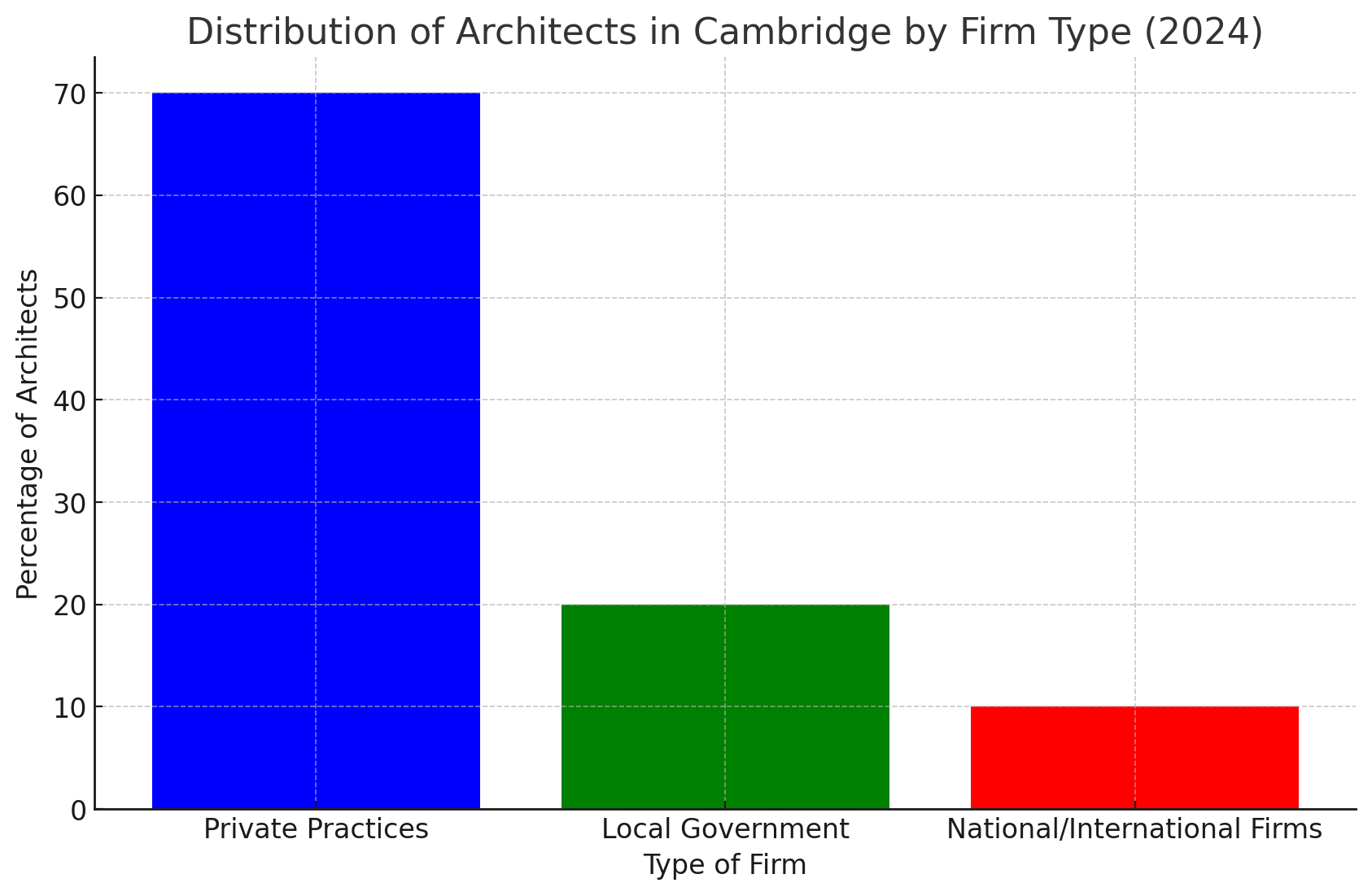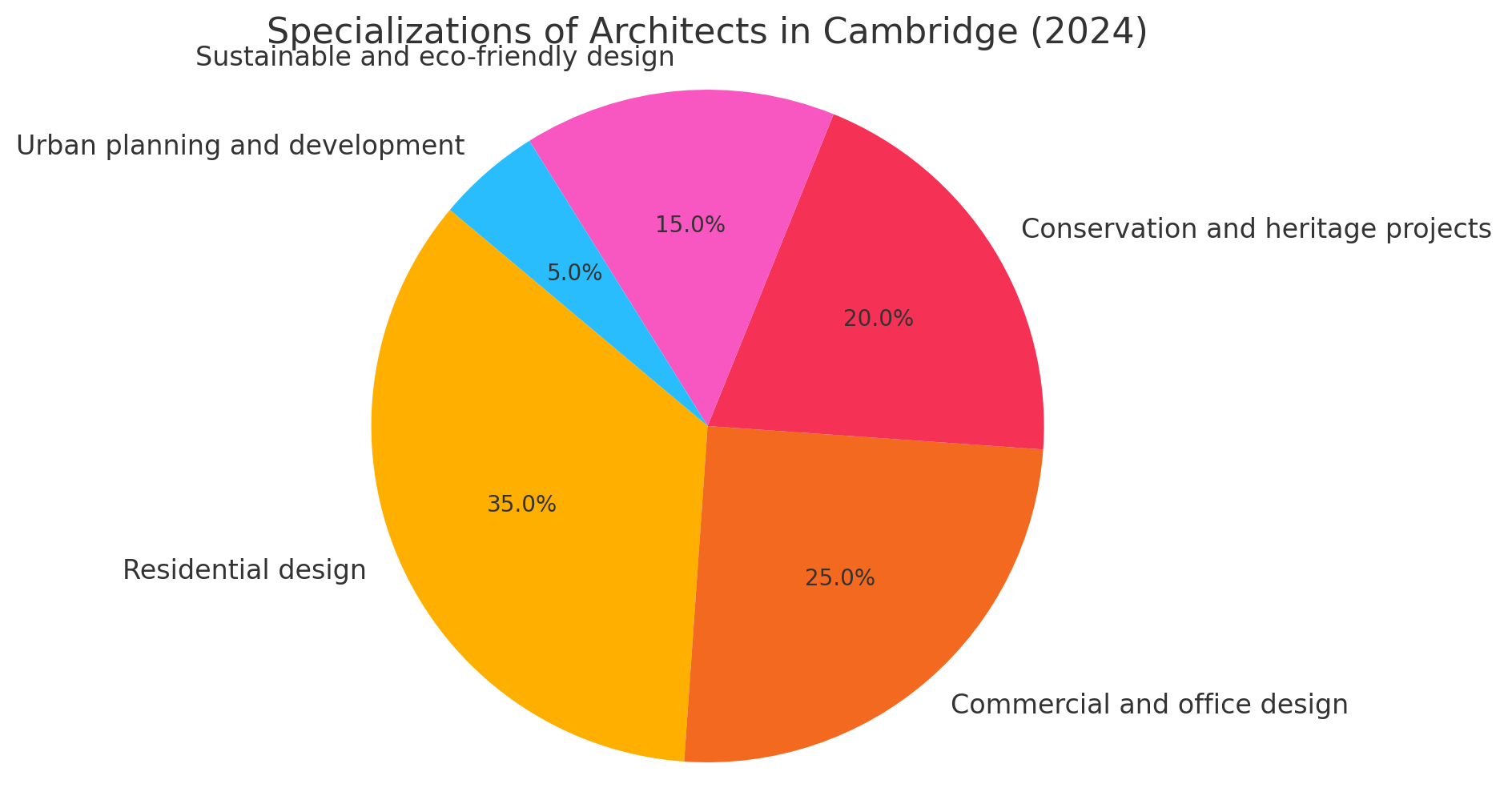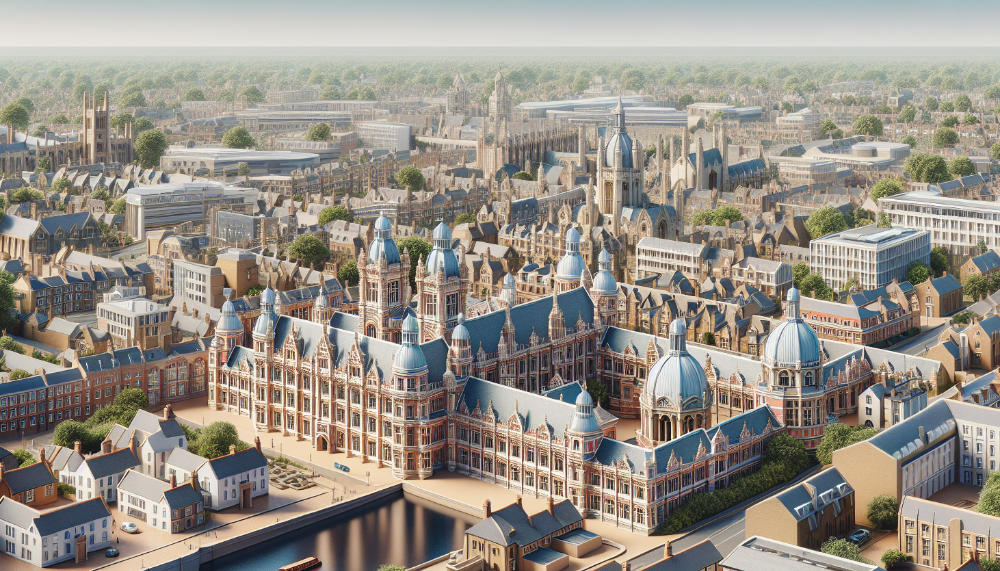Architects Cambridge have a few lifetimes worth of combined experience. Let us design your dream home or building.
Key Takeaways
| Key Points | Details |
|---|---|
| Number of Architects | Approx. 550 registered in Cambridge |
| Firm Distribution | 70% in private practices, 20% in local government, 10% in national/international firms |
| Specializations | Residential design (35%), Commercial and office design (25%), Conservation and heritage projects (20%), Sustainable and eco-friendly design (15%), Urban planning and development (5%) |
| Average Salary | £45,000-£60,000 |
| Key Trends 2024 | Sustainable and energy-efficient design, affordable housing, BIM and digital design tools, community engagement |
Introduction
The architecture scene in Cambridge is vibrant and specialised. With around 550 registered architects as of 2024, this community contributes significantly to the city's evolving skyline and heritage conservation efforts.

Architect Demographics
According to the Royal Institute of British Architects (RIBA), there are approximately 550 registered architects in Cambridge. Firm distribution is as follows:
- 70% of architects work for private practices.
- 20% are employed by local government.
- 10% work for national or international firms.
For more on how we can help architects leverage digital strategies, check out our Digital Strategy Service.
Specialisations of Architects
Architects in Cambridge pursue various specialisations. Here’s a breakdown:
- Residential design: 35%
- Commercial and office design: 25%
- Conservation and heritage projects: 20%
- Sustainable and eco-friendly design: 15%
- Urban planning and development: 5%
Salaries and Qualifications
Architects in Cambridge earn an average annual salary ranging from £45,000 to £60,000, depending on experience and firm size. Most architects hold a Bachelor's or Master's degree in Architecture (RIBA Part 1 and Part 2).

We offer specialised SEO Services to enhance the online presence of architectural firms.
Industry Trends in 2024
The architectural industry in Cambridge is evolving with several key trends:
- Sustainable and energy-efficient design: In response to global environmental challenges.
- Affordable housing and community development projects: Addressing the housing crisis is a priority.
- Advancements in building information modeling (BIM) and digital design tools: Tech integration enhances precision and efficiency.
- Community engagement and participatory design processes: Ensuring designs meet community needs and preferences.
For examples of our work transforming the digital presence of architecture firms, visit our Case Studies.
Conclusion
The architecture industry in Cambridge is marked by skilled architects specializing in various niches. With a continued focus on sustainability, affordability, and technological advancements, the future of architecture in Cambridge appears promising.
Explore our Social Media Strategy to understand how we can help you reach a broader audience.


